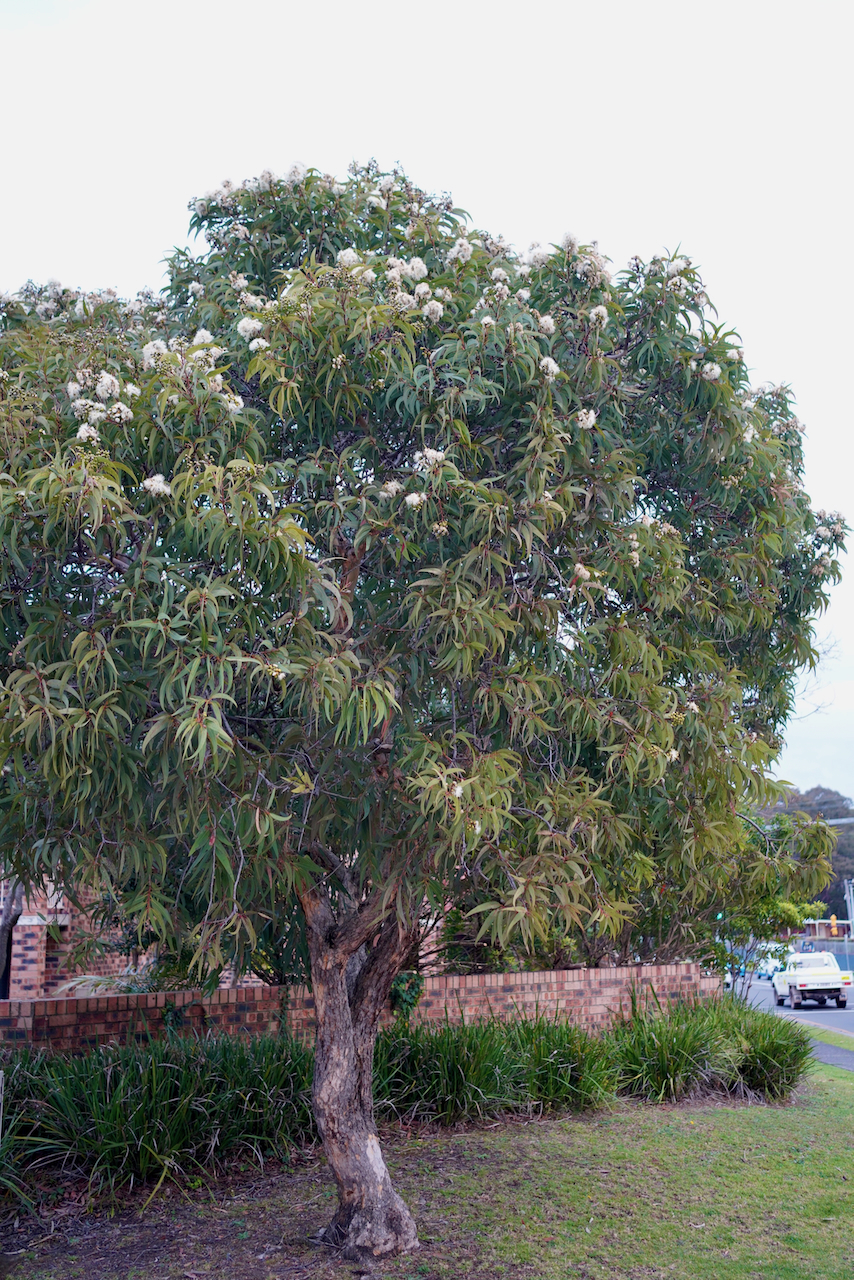-
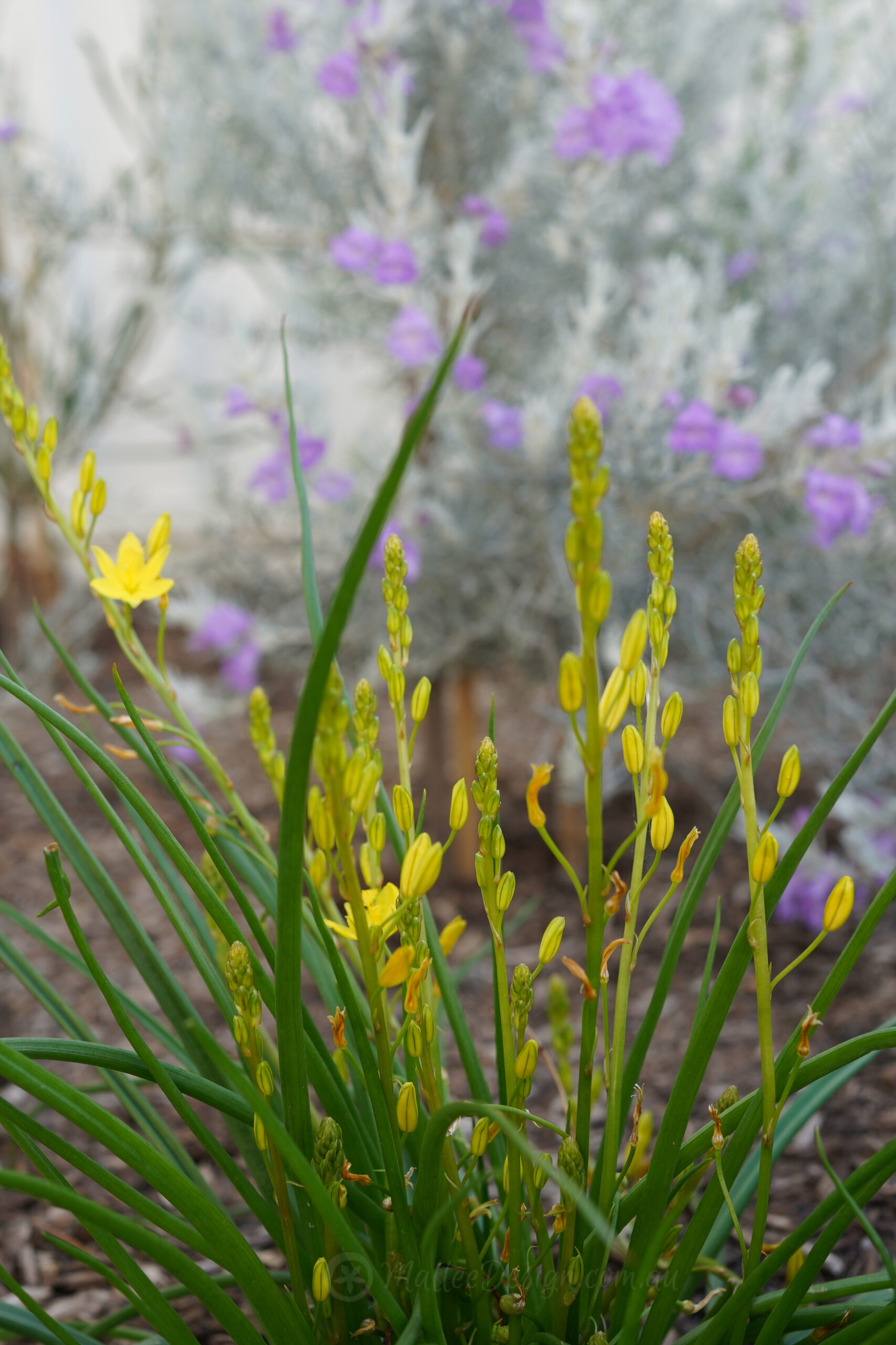
Bulbine Bulbosa the leek that creeps
Say hello to this happy little native bulb, this is the native leek or Bulbine bulbosa and I have been using it in designs for the past few years around pond edges and in native cottage style gardens. The bright yellow fragrant flower spikes appear in Spring and when grown in clusters this plant can…
-
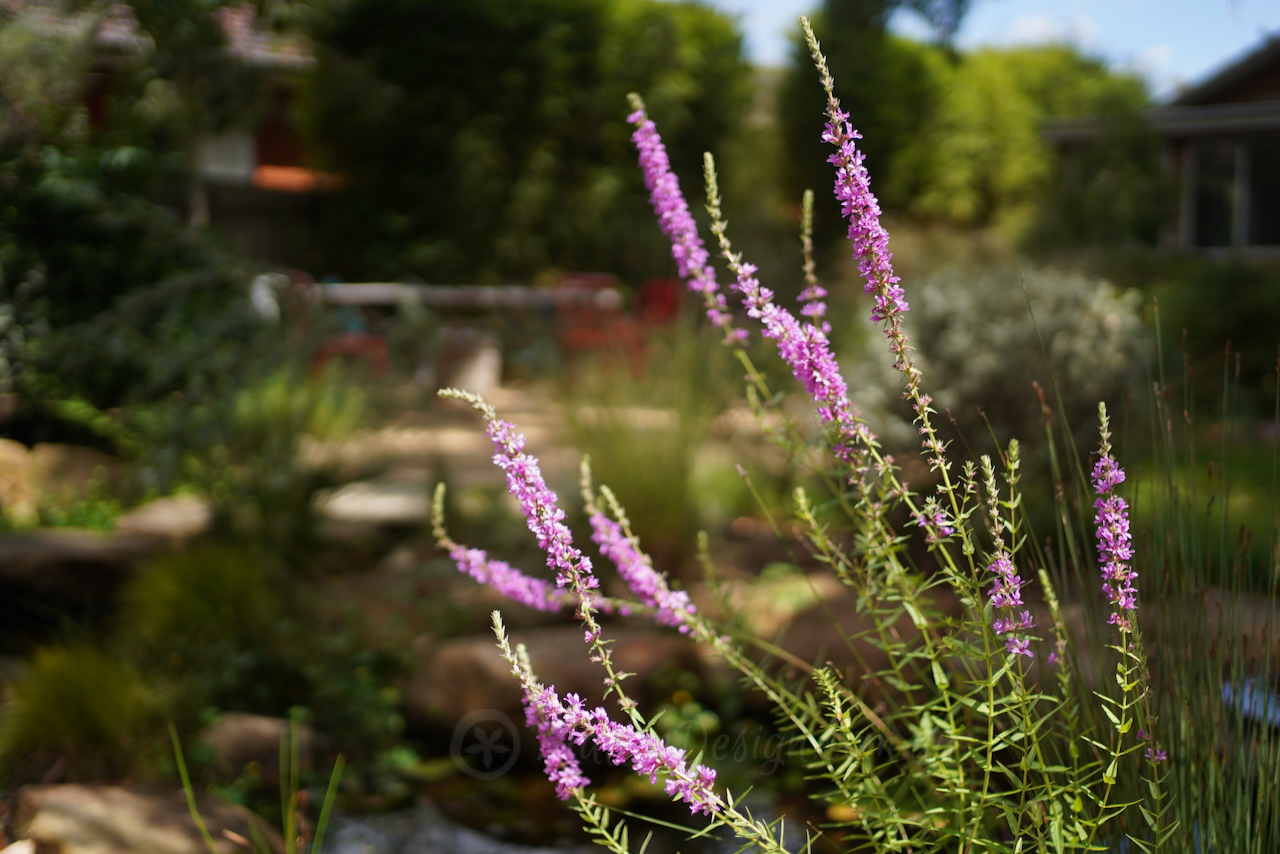
the intrigue of Lythrum salicaria
This is a very fun native pond plant growing in my garden, currently flowering for its second summer. It’s called Lythrum salicaria, or Purple Loosestrife, and it’s an extremely satisfying species to grow thanks to its long flowering period and deep pink-purple flower spikes. I’m growing it as a pond-edge plant, with its root ball completely…
-

the festive flowers of Baeckea virgata
I have been admiring this lovely screening hedge on a busy road for years, always driving by too busy to stop when it is in flower. But at last I made the time to stop and photograph this row of Baeckea virgata in full festive flower last week, I think it rivals NSW Xmas bush…
-
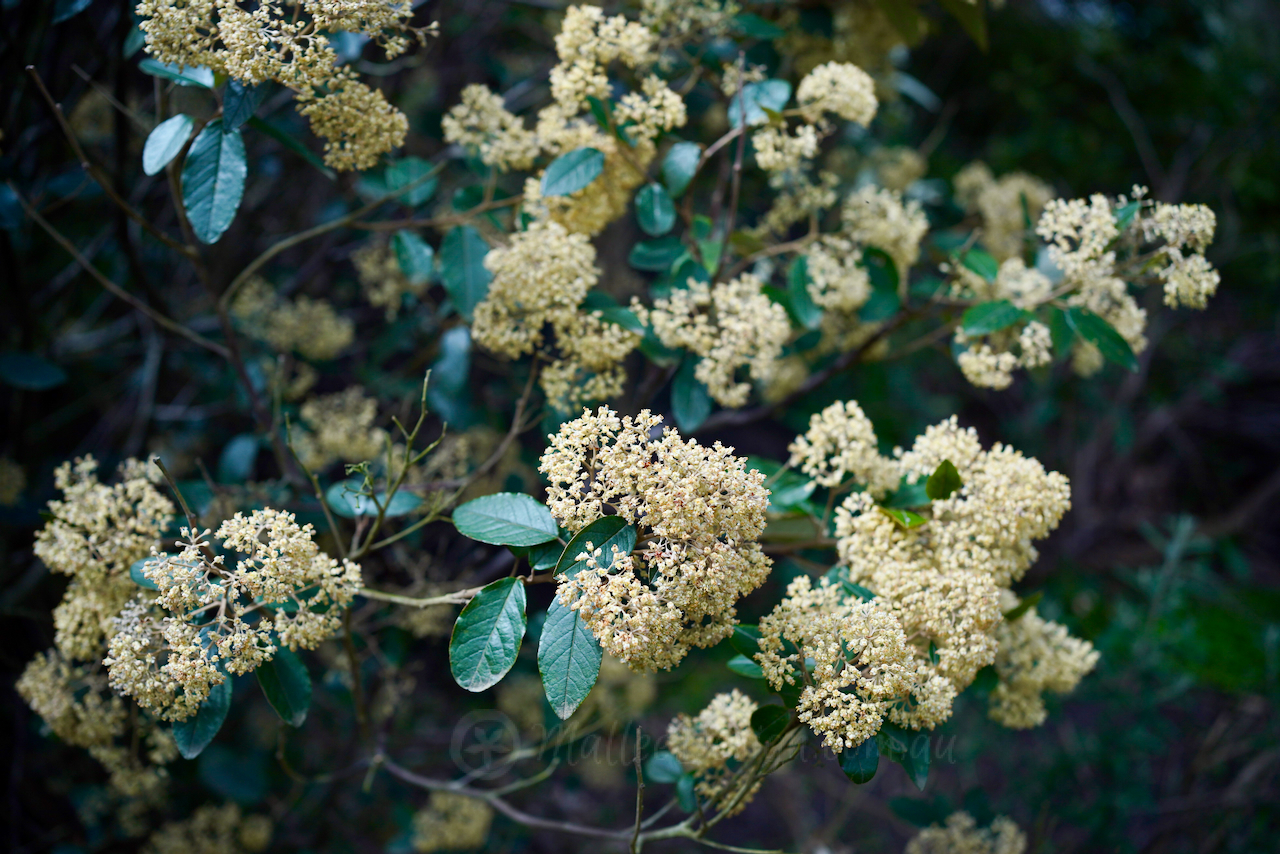
Pomaderris Elliptica: feature screening
After much sleuthing and a little bit of travel I have finally figured out which Pomaderris I saw flowering its head off in Cranbourne Botanical gardens last year. It only took a quick dash around Hobart Botanical Gardens, a few weeks ago, where I spotted it with a label! I am also guilty of planting…
-
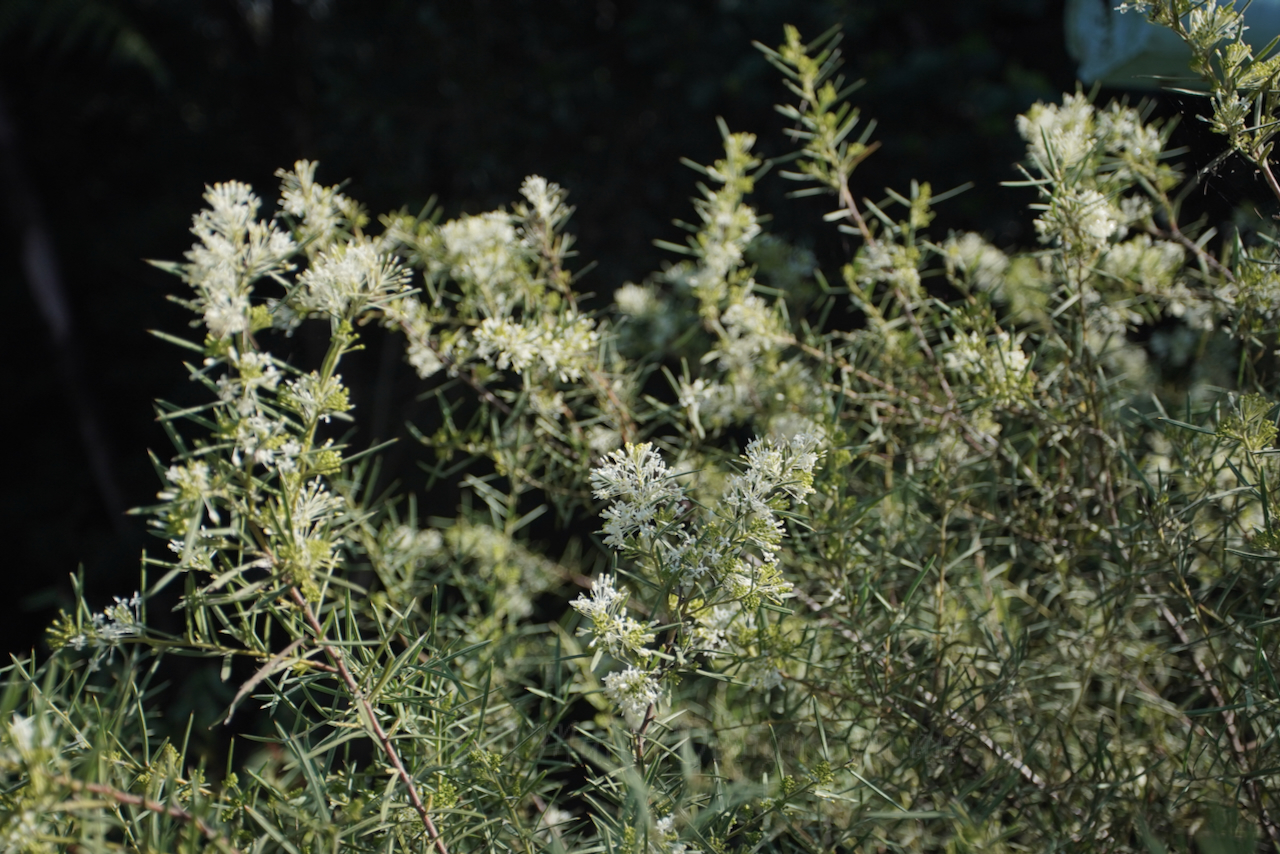
Grevillea anethifolia: Prefectly Prickly
This Grevillea is commonly known as the ‘Spiny Cream Spider Flower’ and is very aptly named. The leaves have needle like points and the whole plant makes a wonderful dense prickly shelter for small birds. These photos were taken in the Illawarra Grevillea Park, I also have a grafted Grevillea anethifolia growing happily in my…
-
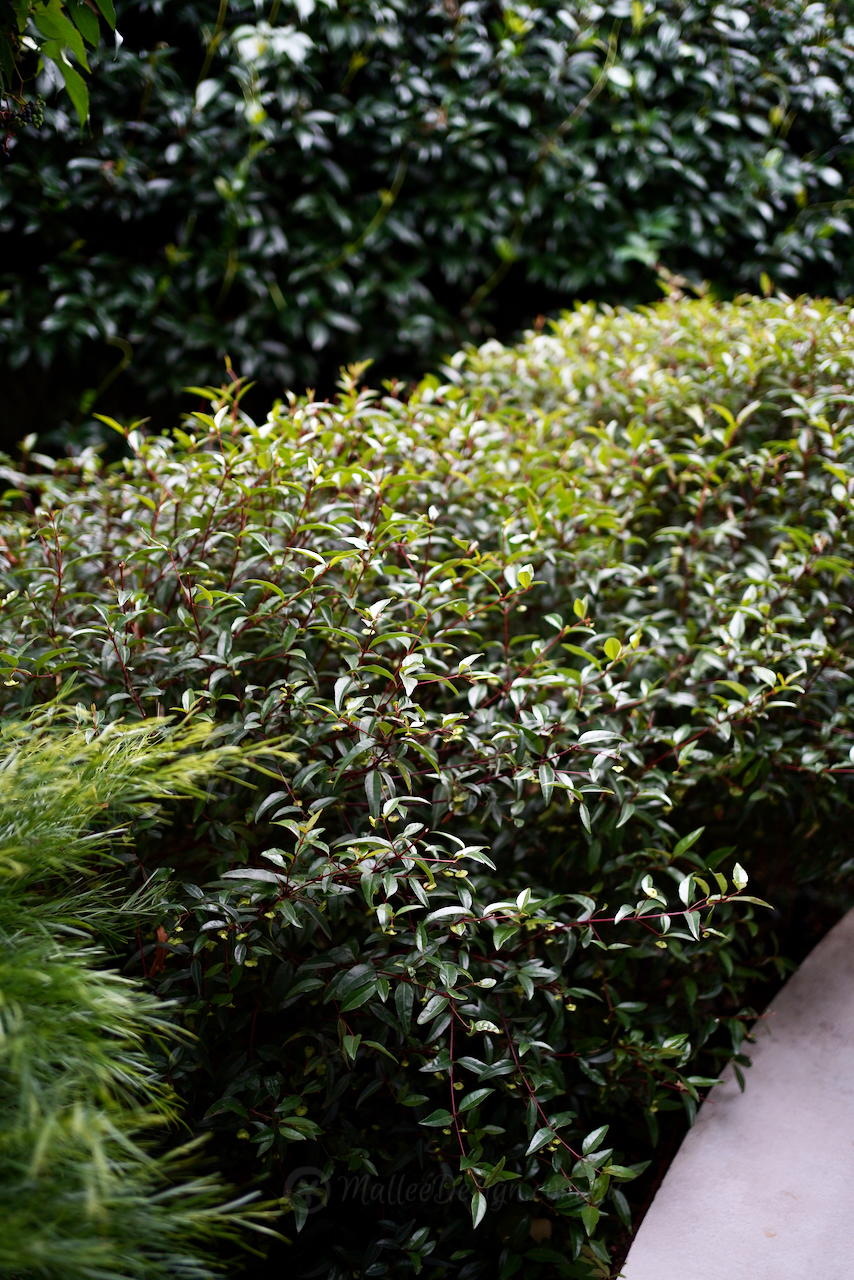
Correa baeuerlenii
Here is another of my very favourite Correas that is such a useful plant in the landscape. Correa baeuerlenii or Chef’s Hat Correa is found naturally growing on the south coast of NSW on shady, damp sites, therefore it grows happily under large trees and will cope with periods of dry and also light frost.
-
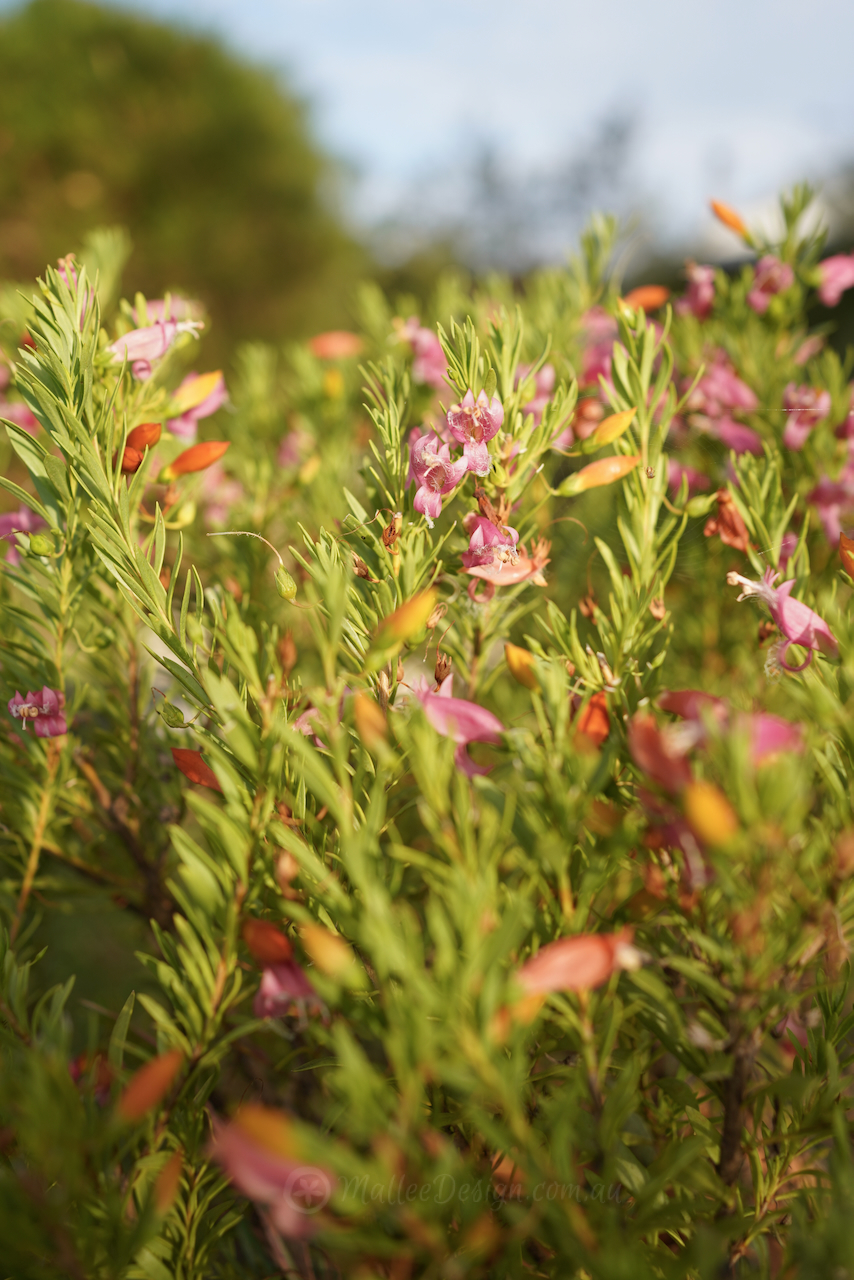
So much Joy: Eremophila racemosa x maculata ‘Fairy Floss’
This Emu bush is always a great performer in a difficult postion, providing so my joy with its multicolured buds and blooms. I have been growing Eremophila ‘Fairy Floss’ for a number of years now and have found it to be particularly tough and hardy. What I didn’t realise was that it is a cross…
-
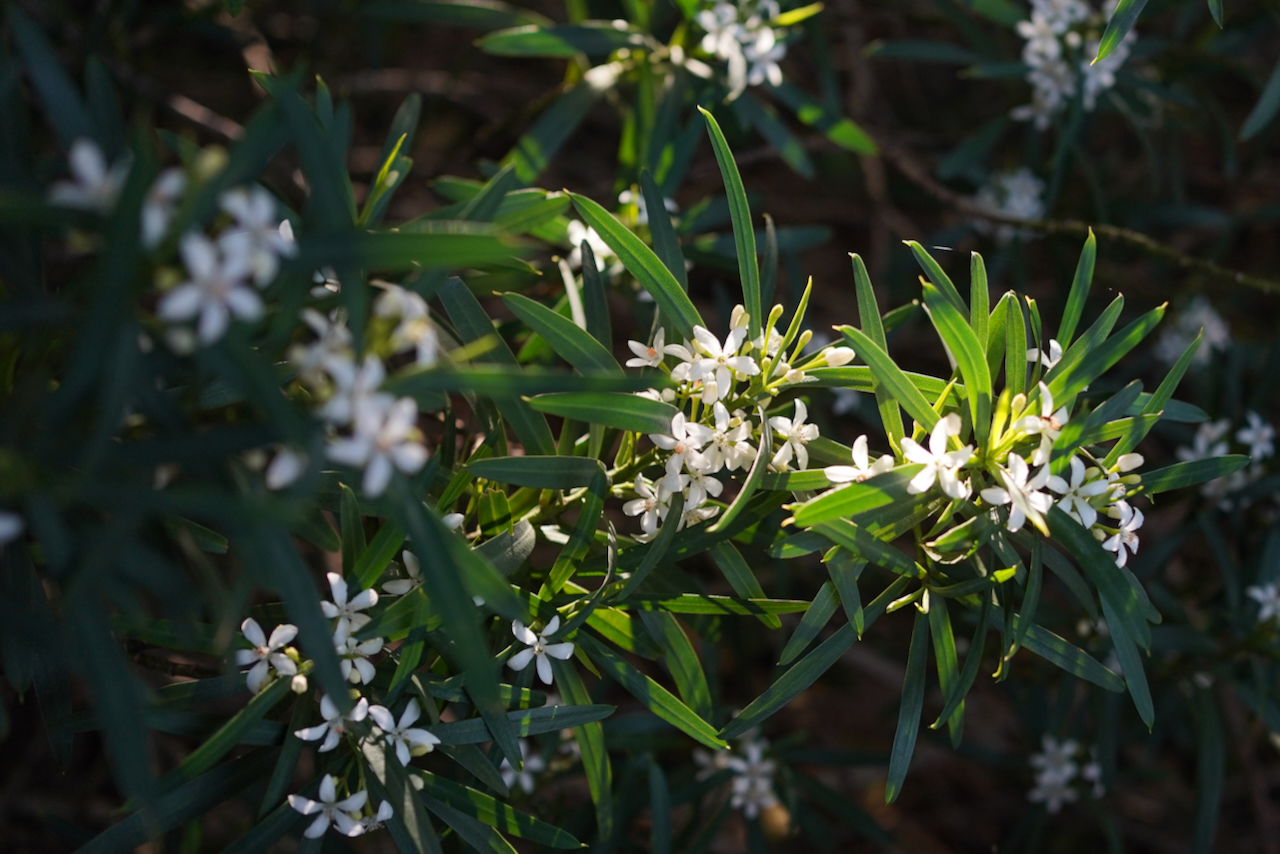
Philotheca myoporoides and it’s many forms
This gorgeous shrub is called Wax Flower or Philotheca, which apparently means “loving receptacle”. And that it is, providing plenty of flowers for pollinators and scent for humans, it is a very hardy species which can handle sun and shade in equal measure. Because of its hardiness it is one of the most widely cultivated…
-
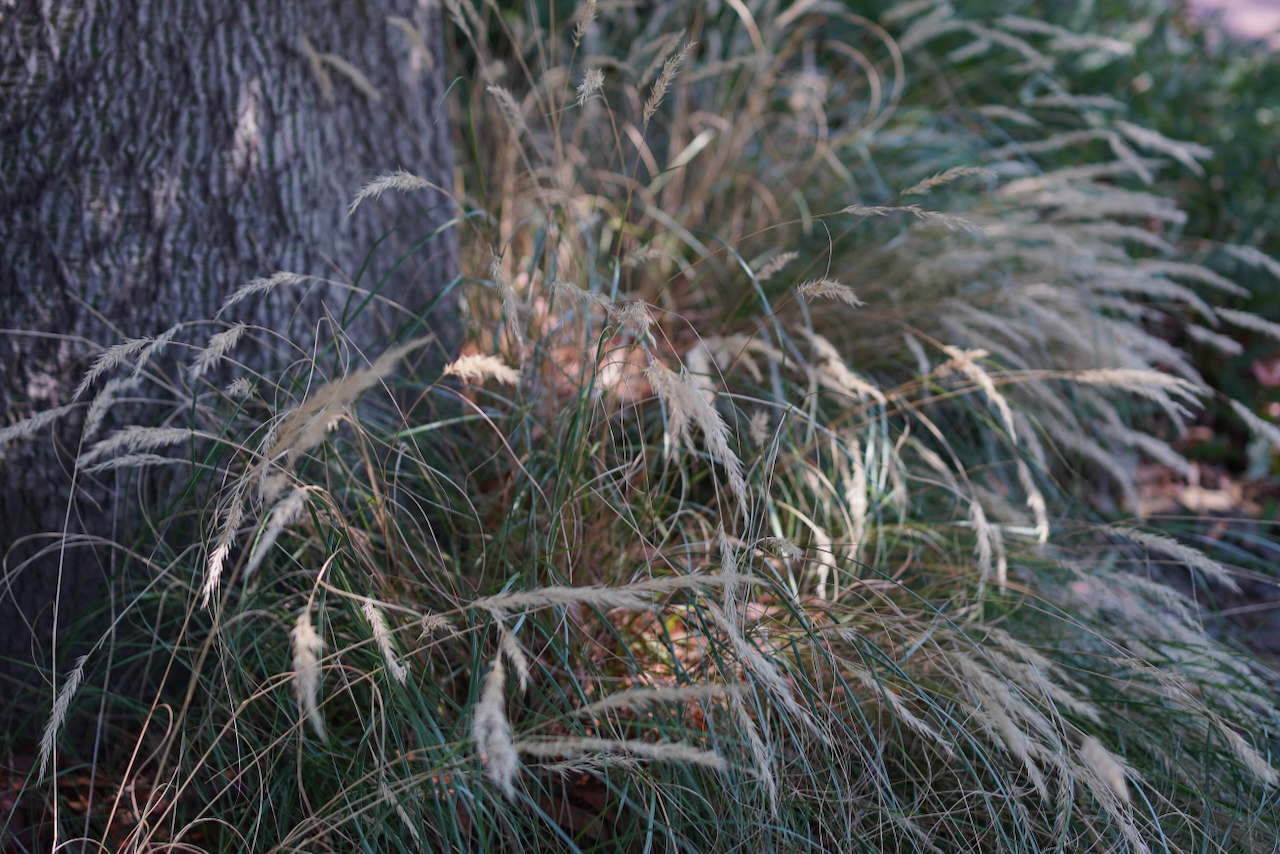
The little brother:Rytidosperma racemosum
I don’t know why but I have always thought of Wallaby Grass as the little brother to Kangaroo Grass. I adore native grasses, they are such an important part of a native planting palette, providing texture and movement and they also play a crucial role as a food source for wildlife. This sweet little native…
-
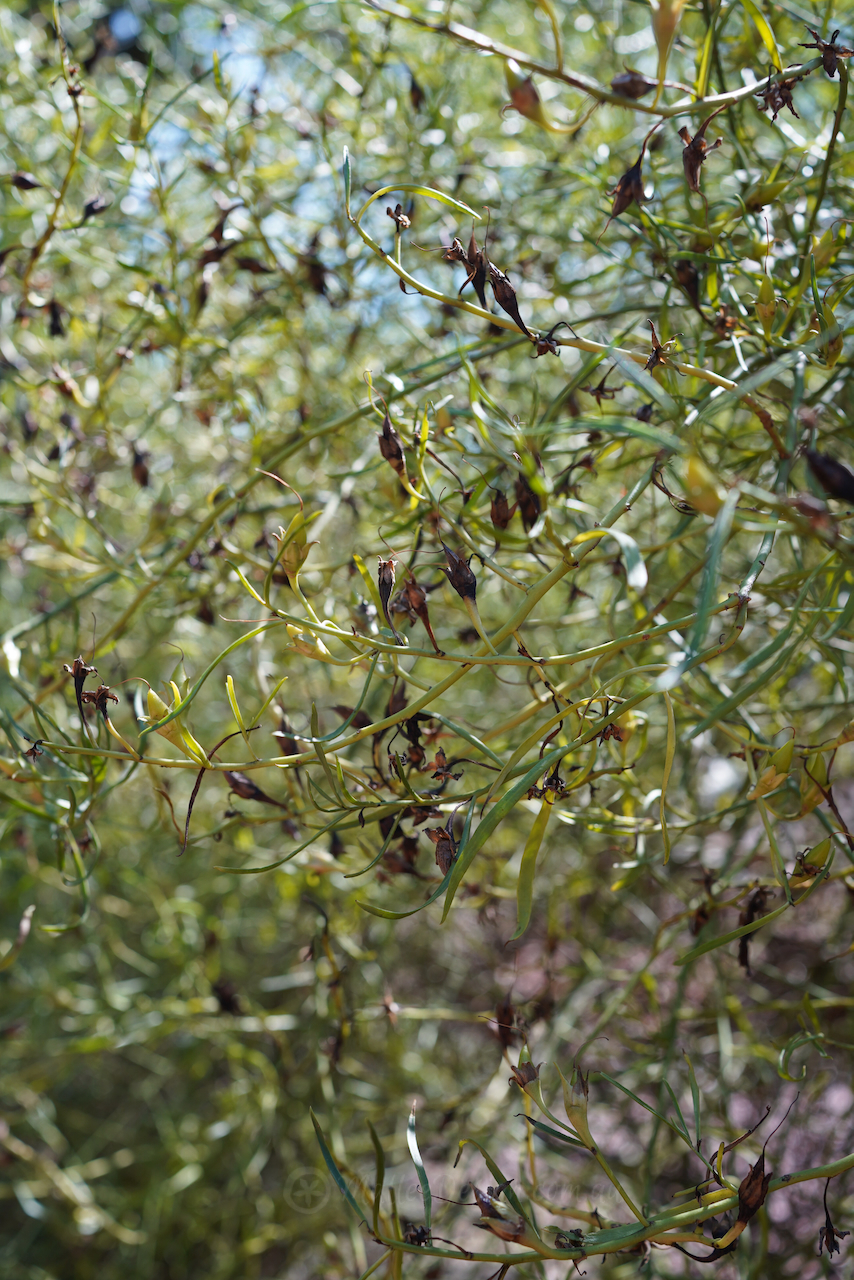
The multifaceted Eremophila Polyclada
This is Twiggy Emu Bush, lives up to its name, this facinating emu bush seems to be showy no matter what stage of flowering it is at. The spent flowers leave behind these showy yellow fruits , and sometimes also left behind is the black remains of the petals, this creates a mix of white,…
-
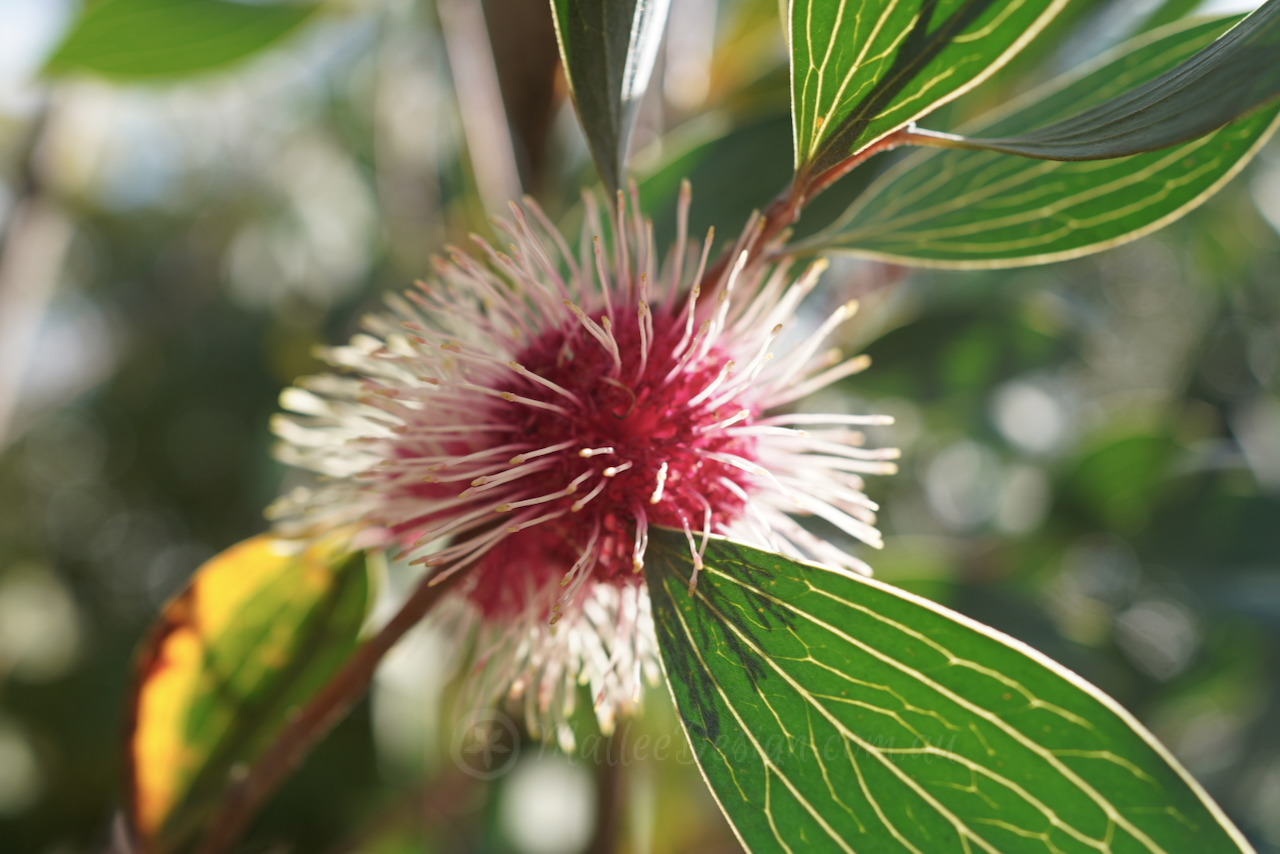
Hakea ‘Pinball’ for all
This is a grafted form of the very showy Pin Cushion Hakea, Hakea laurina, which hails from south-western WA. This is a wonderful grafted species which means we can now grow these very iconic flowers in areas with higher humidity and a heavier soil, it is actually also a cultivar: Hakea laurina x petiolaris. I…
-
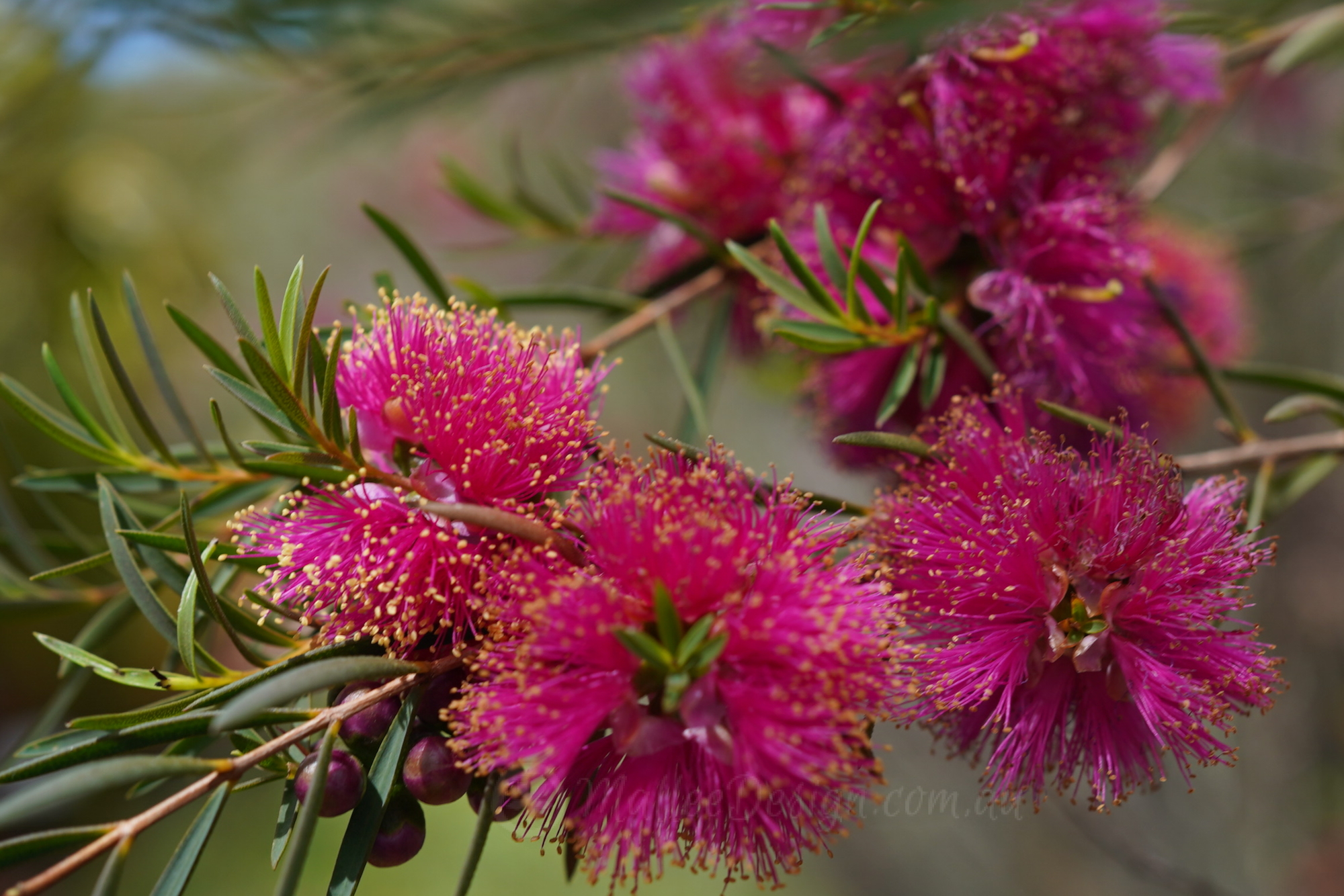
Distinct hot pink: Melaleuca fulgens
Melaleuca fulgens hails from the West of Australia, no surprise there, however it can be found growing in the southern and eastern states quite happily. This species has a long flowering period from Winter through to Summer and as the blooms are such a bright highlight it is hard to miss. This is the pink…
-
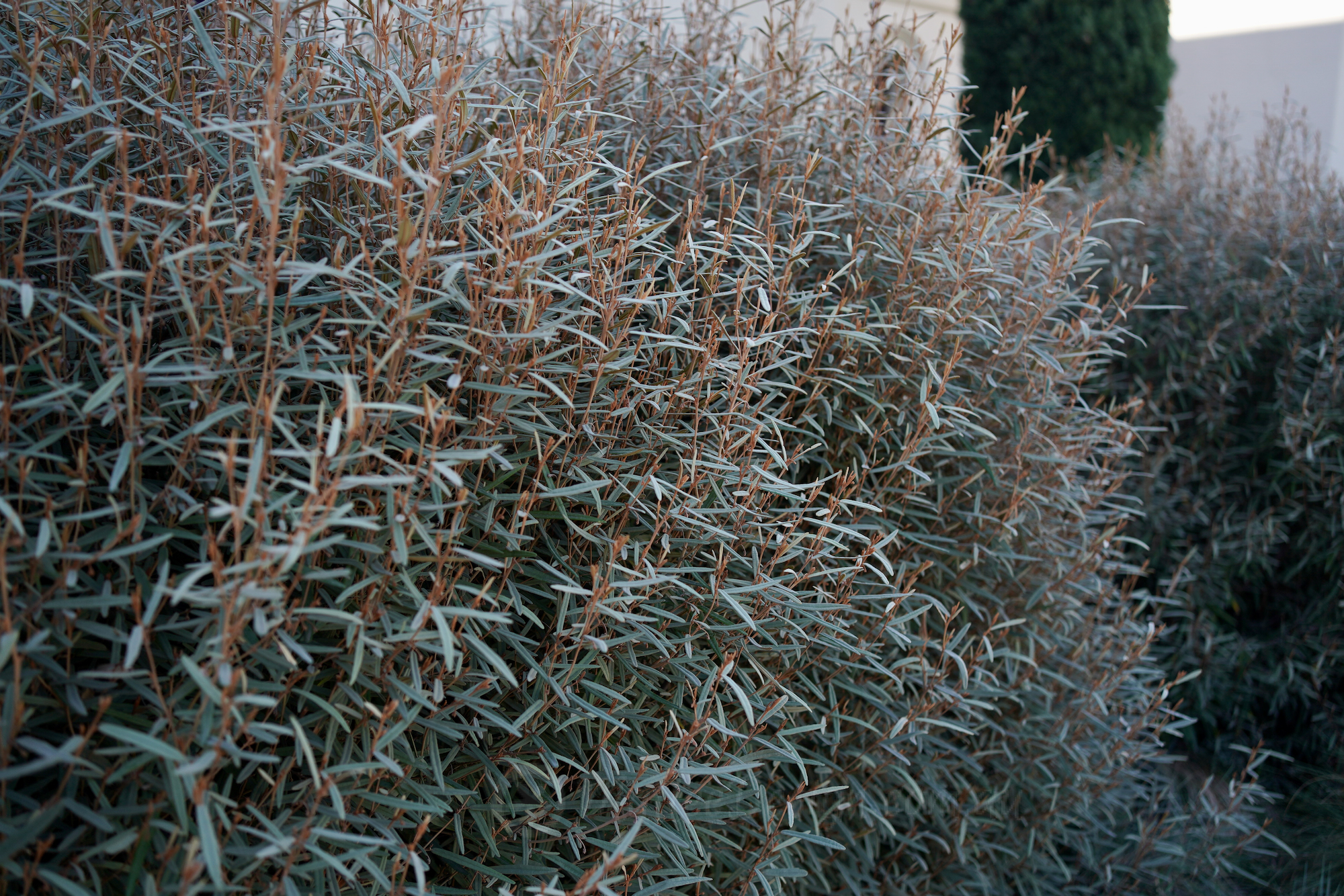
Another furry leaved beauty: Lasiopetalum baueri
This is commonly known as Slender Velvet Bush, which is a most apt description of this interesting under-storey shrub. Lasiopetalum baueri has rusty coloured , furry new growth and pretty delicate pink flowers in Winter. The dried flowers are long-lasting and have potential as a cut flower and the attractive foliage lasts for ages in…
-
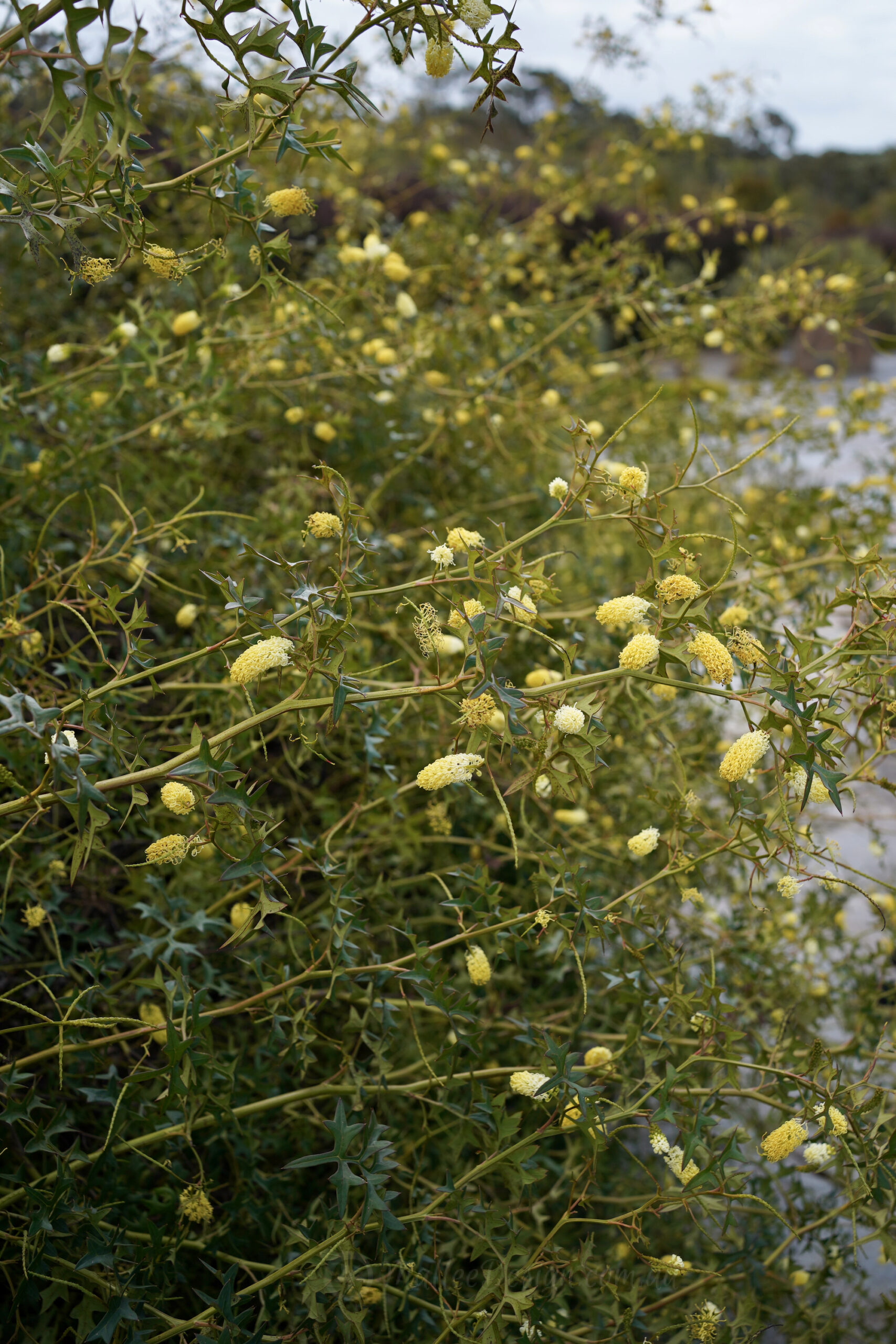
A spikey, perfumed tangle of Grevillea flexuosa
This is a wonderfully messy Grevillea that likes to sprawl all over the place. Its stems literally get tangled in themselves and the leaves are stiff and spikey so they can almost grab onto other plants to hoist themselves towards the sunlight and as its name implies it is so very flexible 😉 Grevillea flexuosa…
-
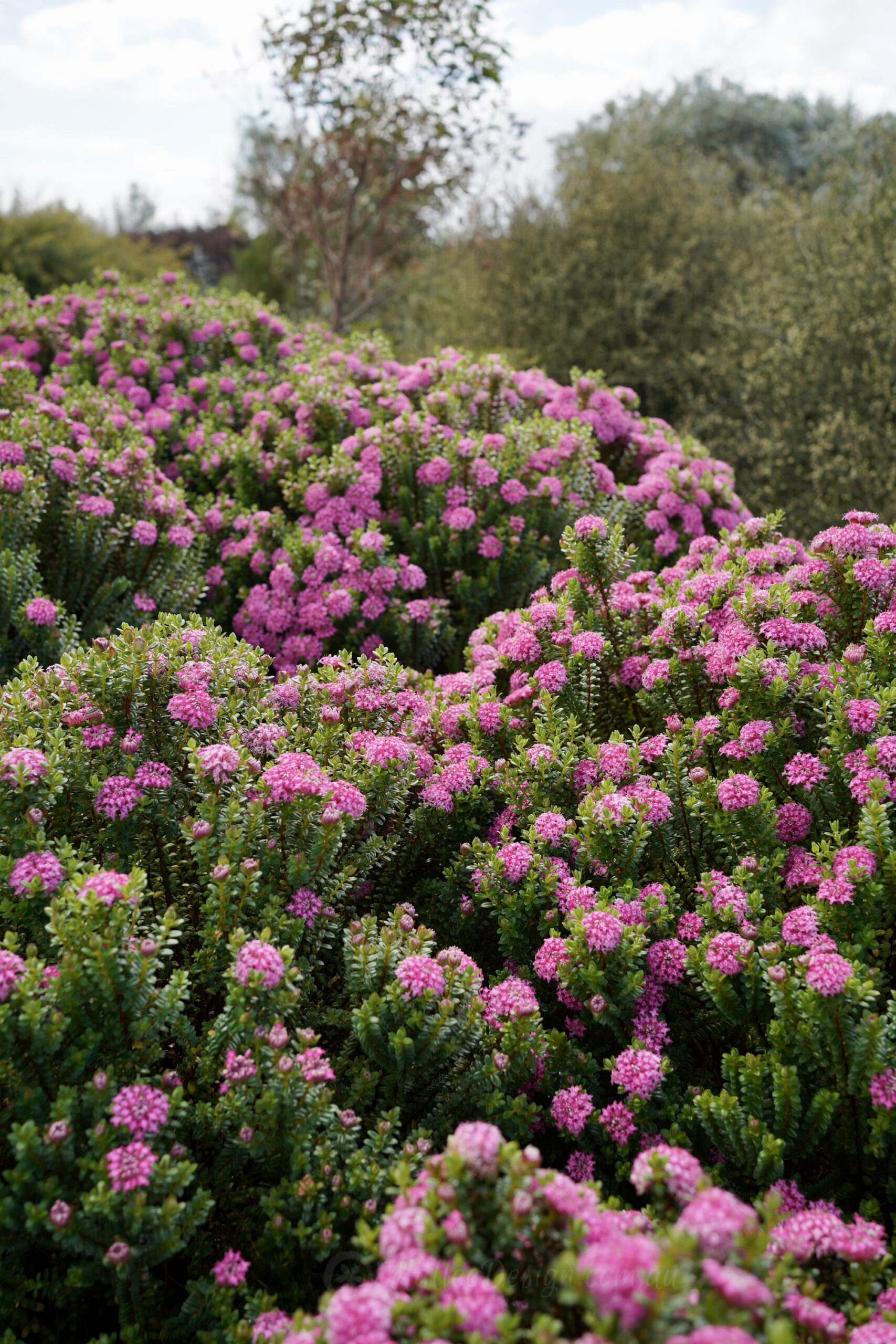
Pimelea: which one is which
I love Pimeleas, they seem to always be in flower and each state has its own unique species. Pimelea’s are a stunning addition to a garden or even a pot. They put on a show with a mass of flowers and the butterflies love them . But which one is which? We are trying our…
-
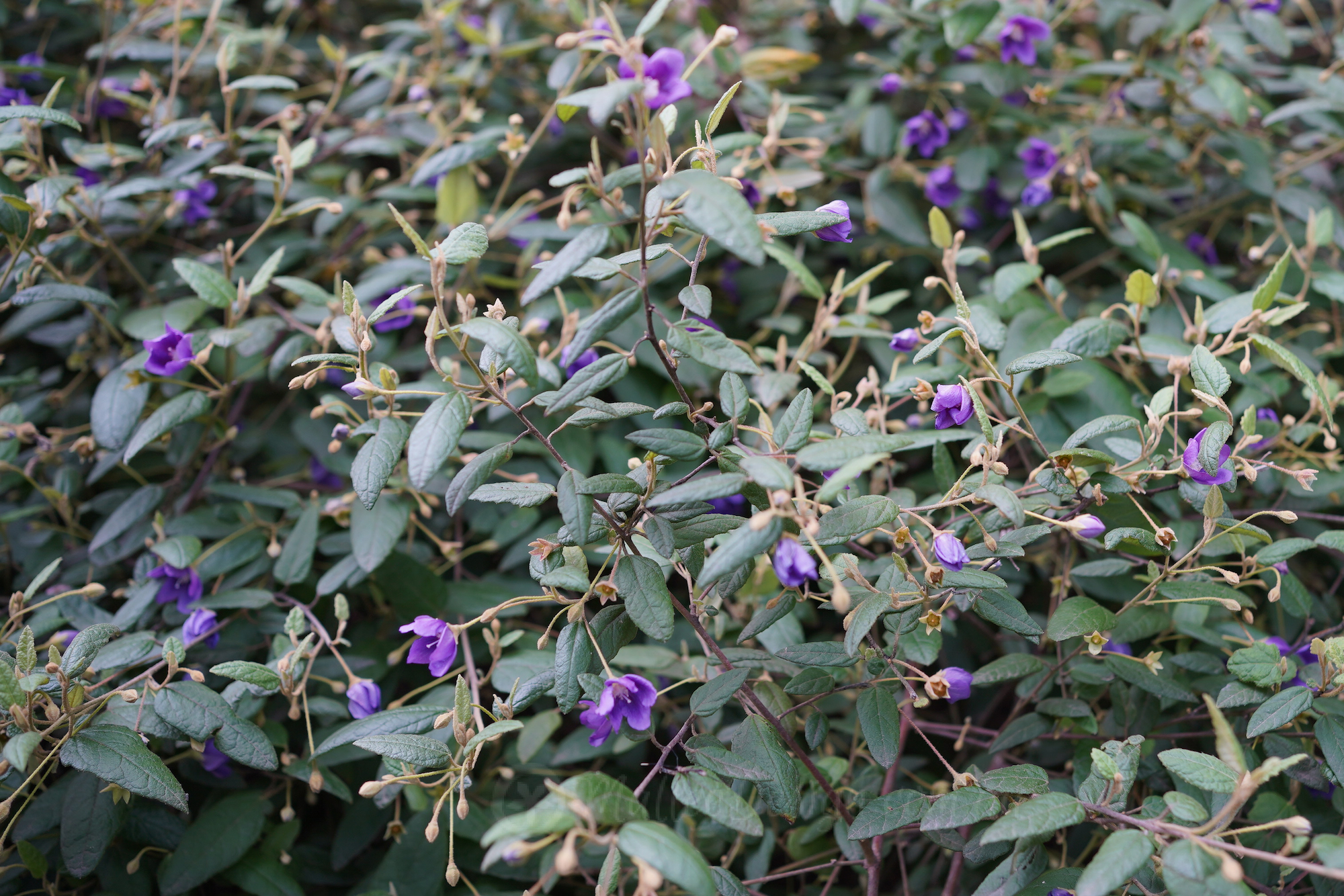
One of a kind: Howittia trilocularis
I discovered this unusual large native shrub in Cranbourne Botanical Gardens on my visit last year. I have never heard of it before but it instantly struck me with its deep purple flowers and small hairy leaves. It was planted as an understorey back drop shrub in one of the garden beds under the canopy…
-
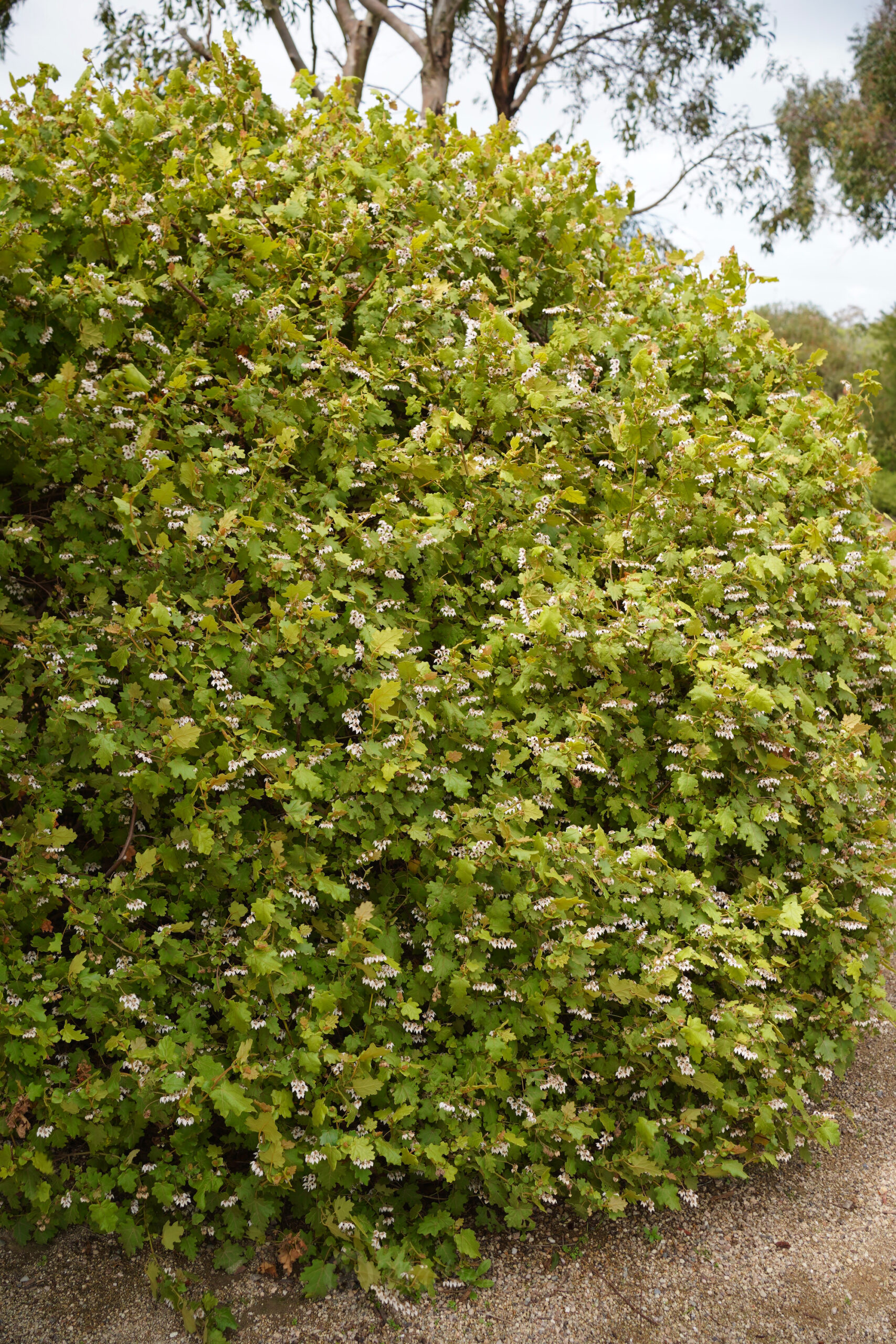
The limitless potential of Thomasia solanacea
I have written about this genus before but thought this species needs its own space on the blog as it really is an extremely versatile medium shrub. It is one of those plants for a trickier spot in the garden as it loves a dry shady position. It is endemic to south-west WA, it is…
-
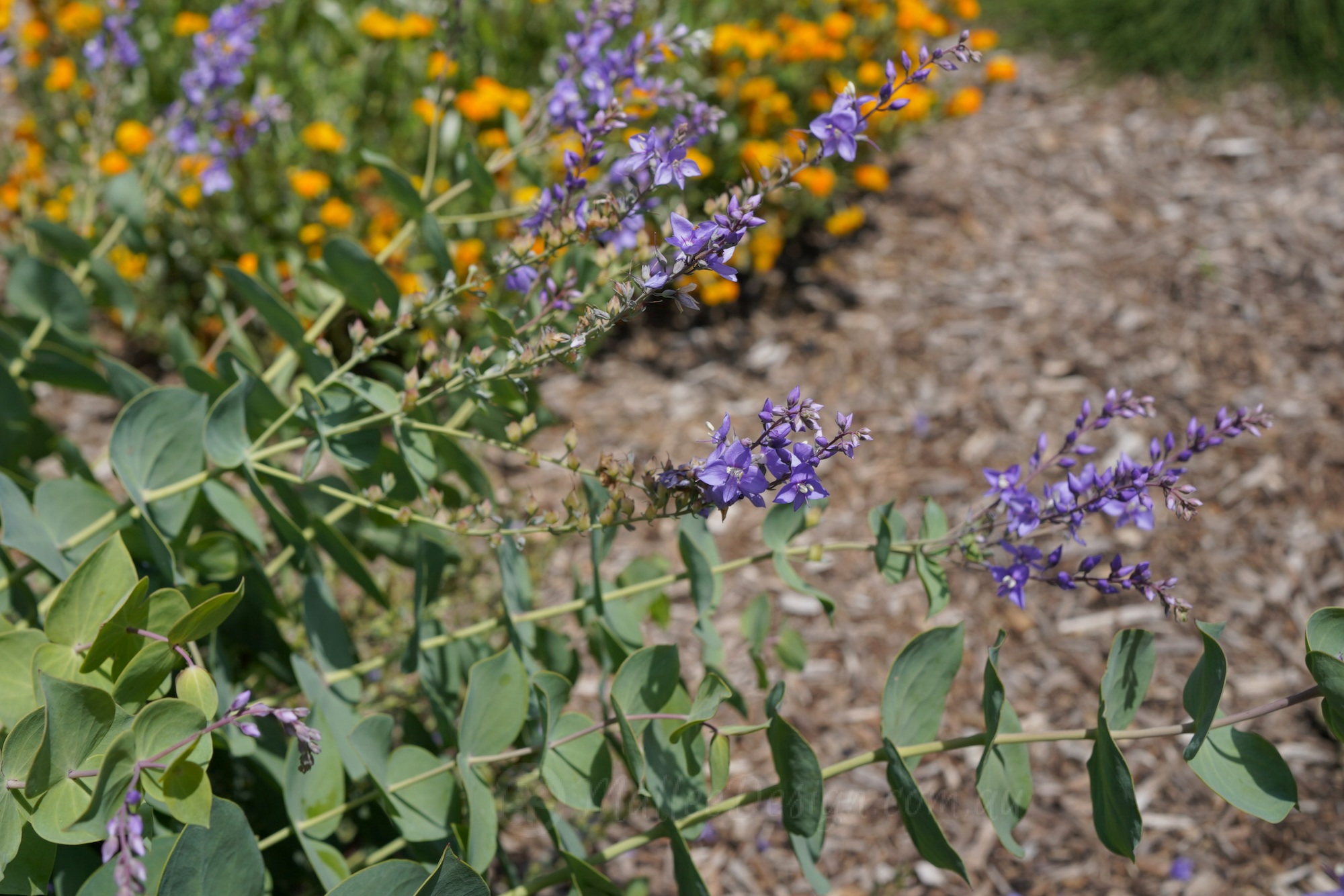
Lovely shrub of many names: Veronica perfoliata
This is to my knowledge currently Veronica perfoliata, it has gone through several differing identities and name changes, I won’t go into all of that, it just seems a shame as I think it may have detracted people from knowing about this useful plant. Firstly I love it because it has a very Eucalypt like foliage…
-
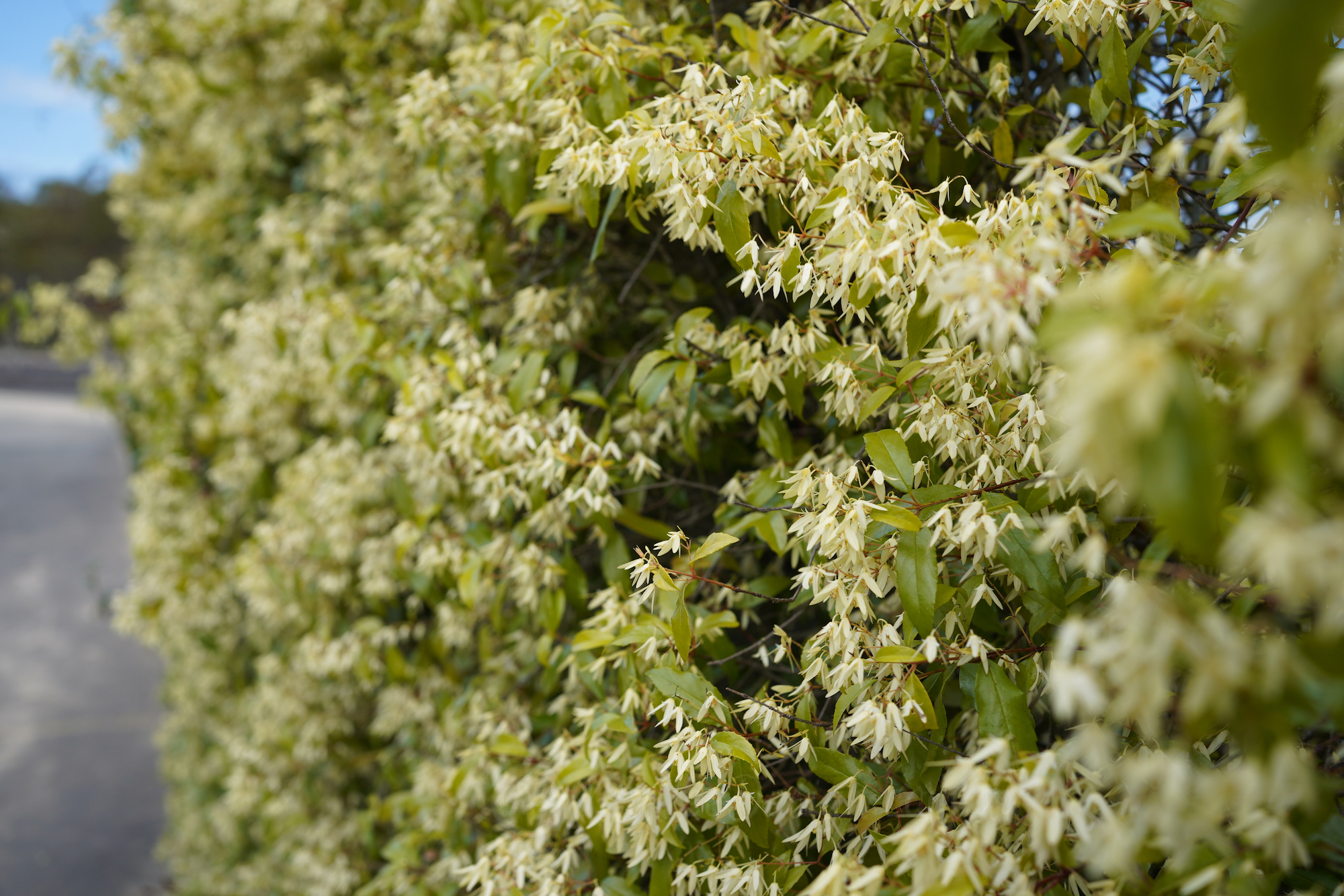
The perfect concealer: Aphanopetalum resinosum
Aphanopetalum resinosum is the answer to many difficult positions in the garden, from dark shady dry corners of the garden to ugly fences or buildings which need to be greened up, Gum Vine may be the solution. This robust native vine has bright green shiny leaves and reddish stems and when it is in flower…
-
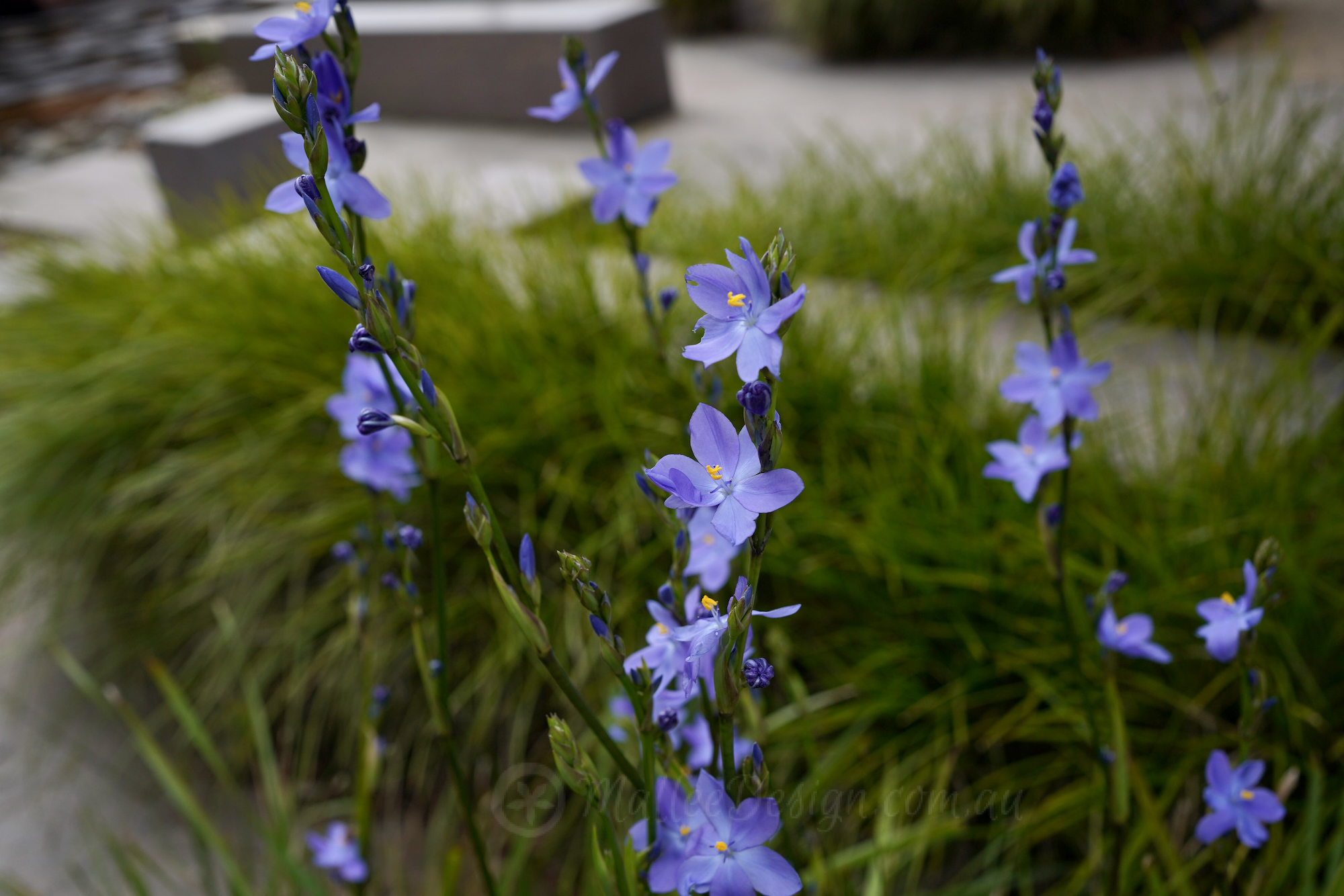
Good morning Iris: Orthrosanthus multiflorus
The flower spikes on the morning Iris really do say good morning all through Spring, it is such a luminous shade of deep blue almost purple that is impossible not to notice. The flowers are displayed on upright stems rising almost a metre above the tufted foliage. Orthrosanthus multiflorus can be found growing naturally on…
-
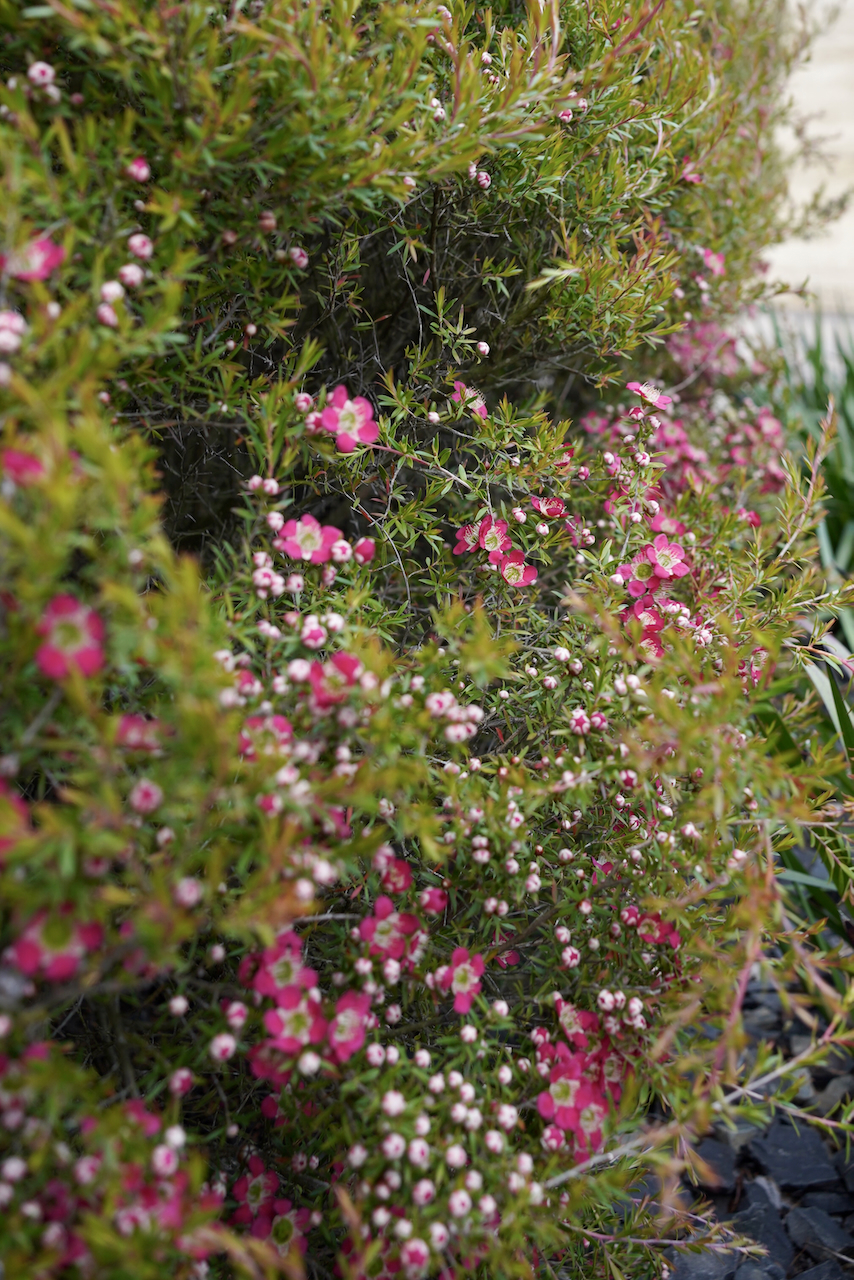
The oh so fun Leptospermum ‘outrageous’
Leptospermum ‘Outrageous’ puts on a show of brilliant pink-red flowers in Spring, and it absolutely covers itself as the weeks go on. This medium shrub has delicate weeping branches and it can be pruned into a low hedge or border plant. It is also showy enough to be a great feature shrub even when not…
-
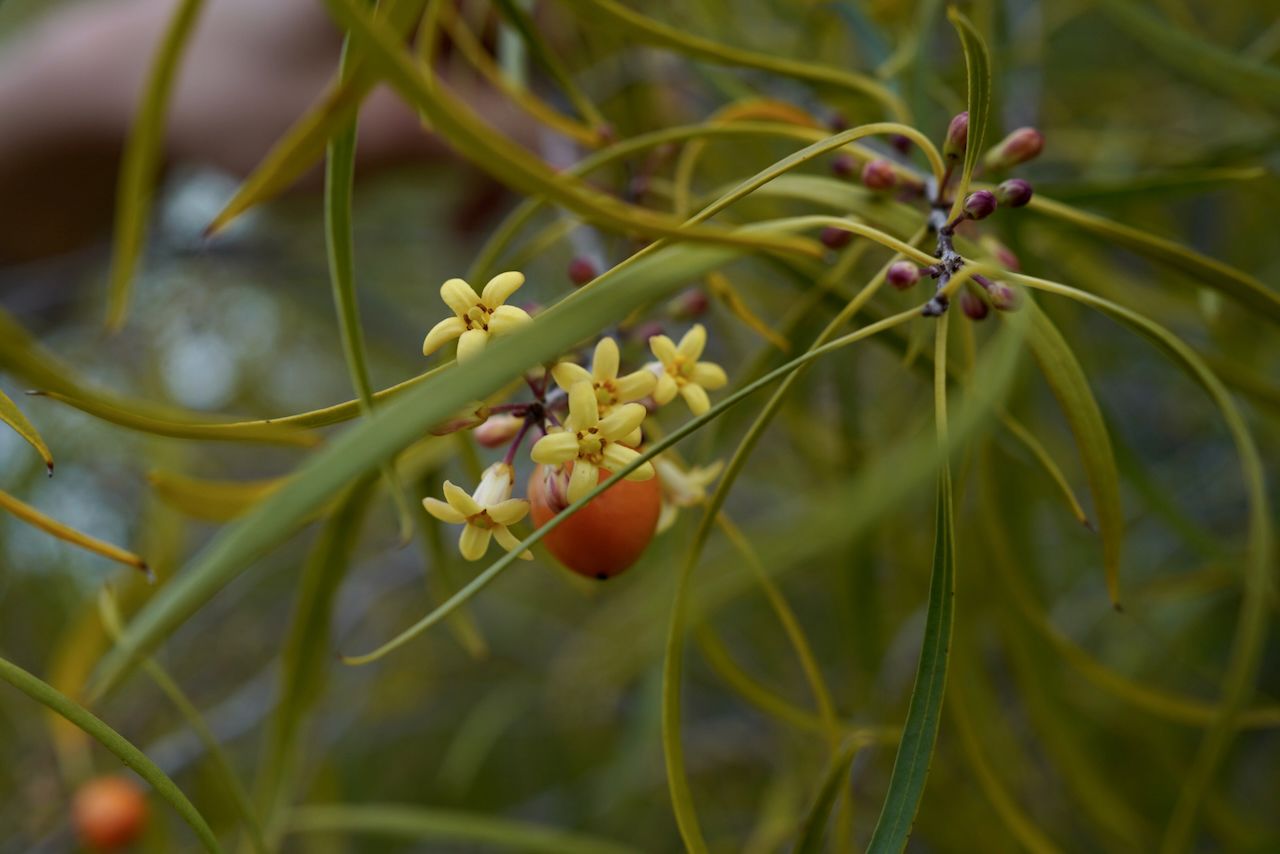
Powerful medicinal tree: Pittosporum angustifolium
This is a small native Medicine plant affectionately known as Gumbi Gumbi, it actually has many names as it has many uses. It is also known as Western Pittosporum, Berrigan, Bitter Bush, Cattle Bush, Cheesewood, Butter Bush, Native Willow or Native Apricot. The properties of Gumbi Gumbi are quite potent and only those familiar with…
-
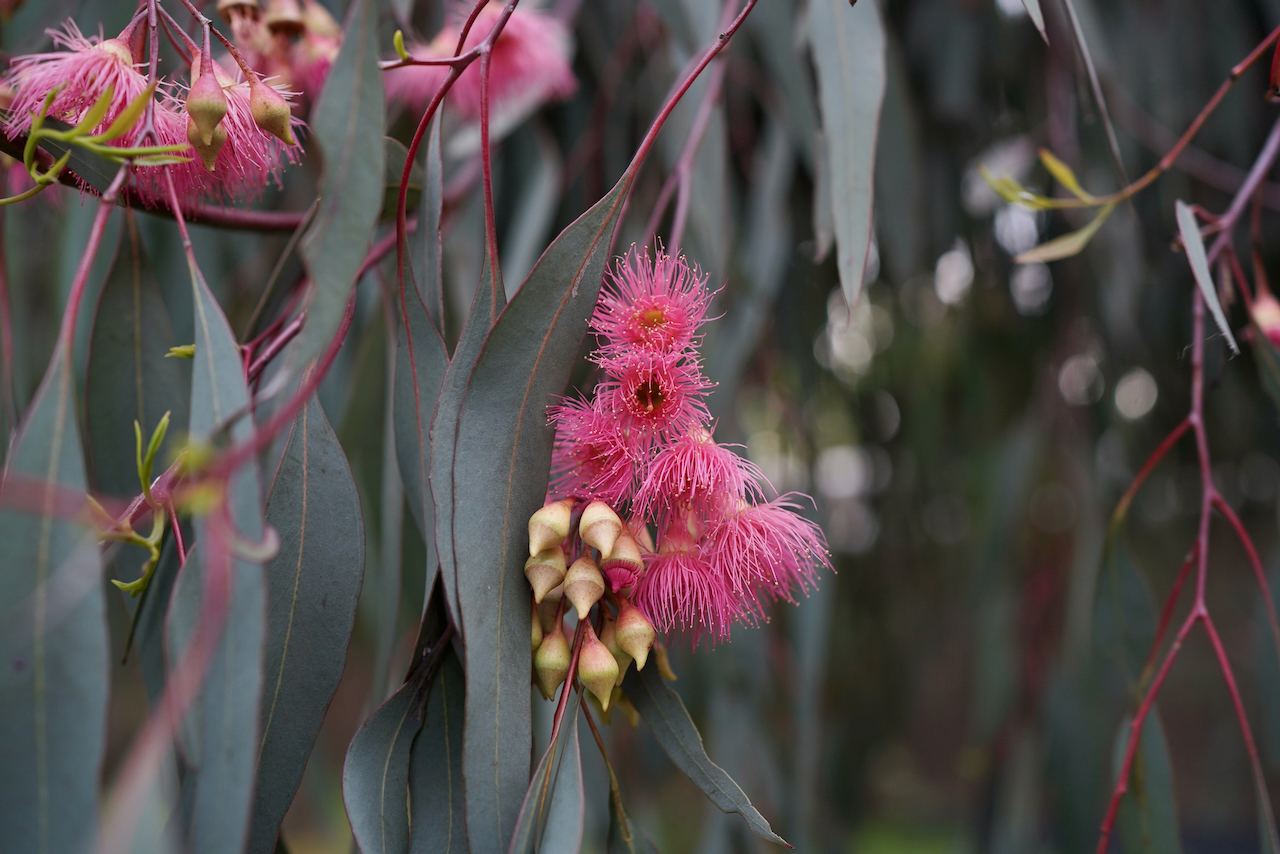
‘Red Iron Bark’ – Eucalyptus sideroxylon Rosea
I live in Iron Bark territory, on a clay soil, near the coast, the local Iron Barks stand up to the strong coastal winds and often boggy soil. One introduced Iron bark that does very well in my area is Eucalyptus sideroxylon Rosea, this is a stunning medium sized tree, that I gladly recommend for…
Category: Frost tolerant


